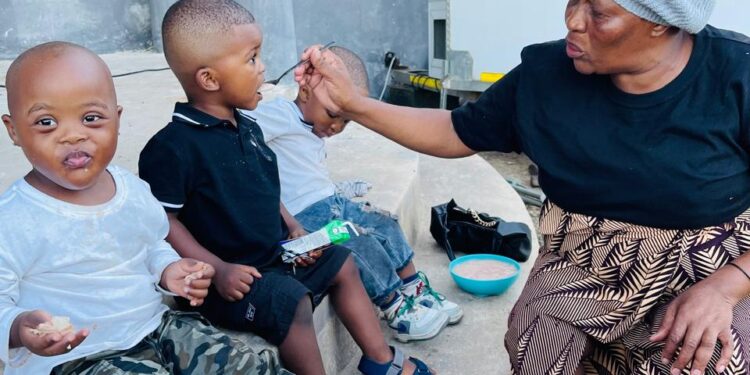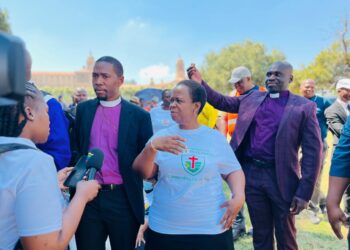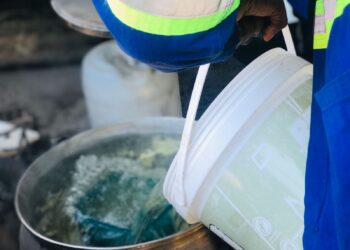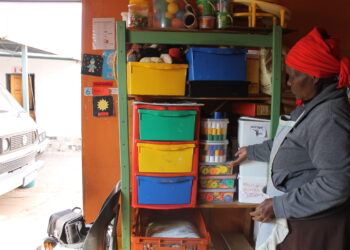When Pearl Makhubo, Junior’s mom first sought a daycare for him, she was nervous about whether his diagnosis of Down syndrome would stand in the way. To her relief, the school welcomed him with open arms, treating him as any other child. “They gladly enrolled him, and I believe he’s been loved and treated like any other typical child,” she says.
Building a Support Network
Getting Junior to school is a family effort. On days when work keeps his mother busy, his aunts, grandmother, or family friends’ step in to ensure he gets dropped off and picked up. At home, support extends beyond logistics, “My husband and his siblings are my number one supporters. Junior spends most of his time with us, and when we’re not around, he’s at his grandmother’s house, never without care or love.”
Beyond family, community networks play a role. WhatsApp groups like the Gauteng Down Syndrome Association provide a space for shared learning and emotional support. Although some hospital-based groups dissolved due to low attendance, the connections made have been invaluable.
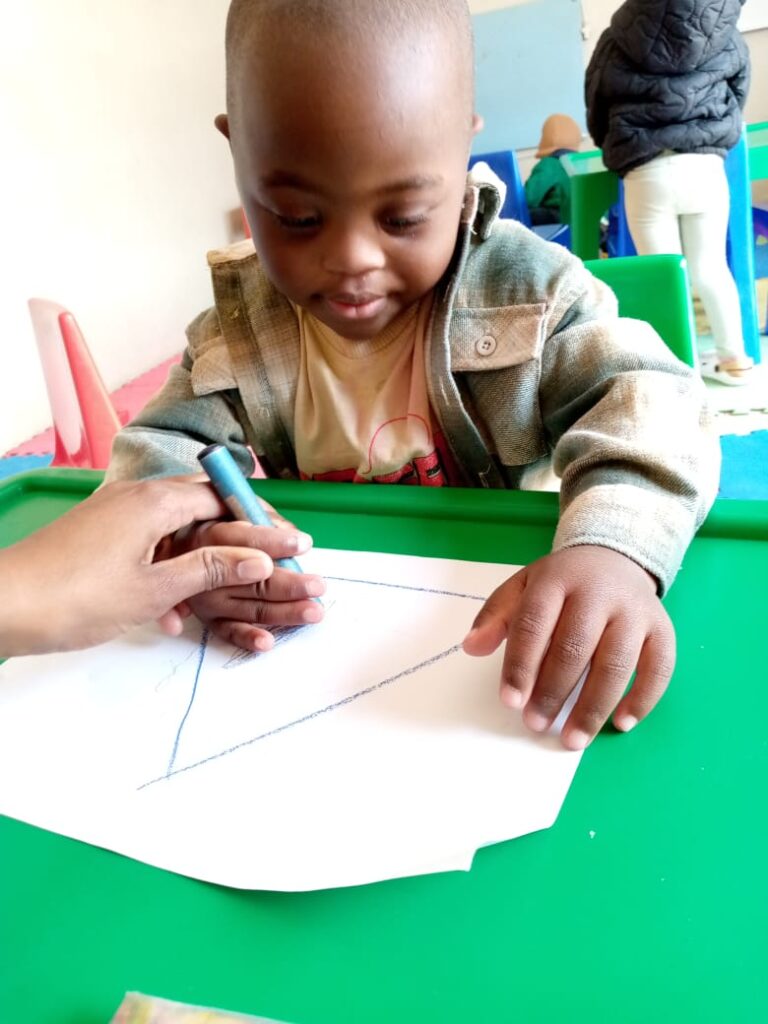
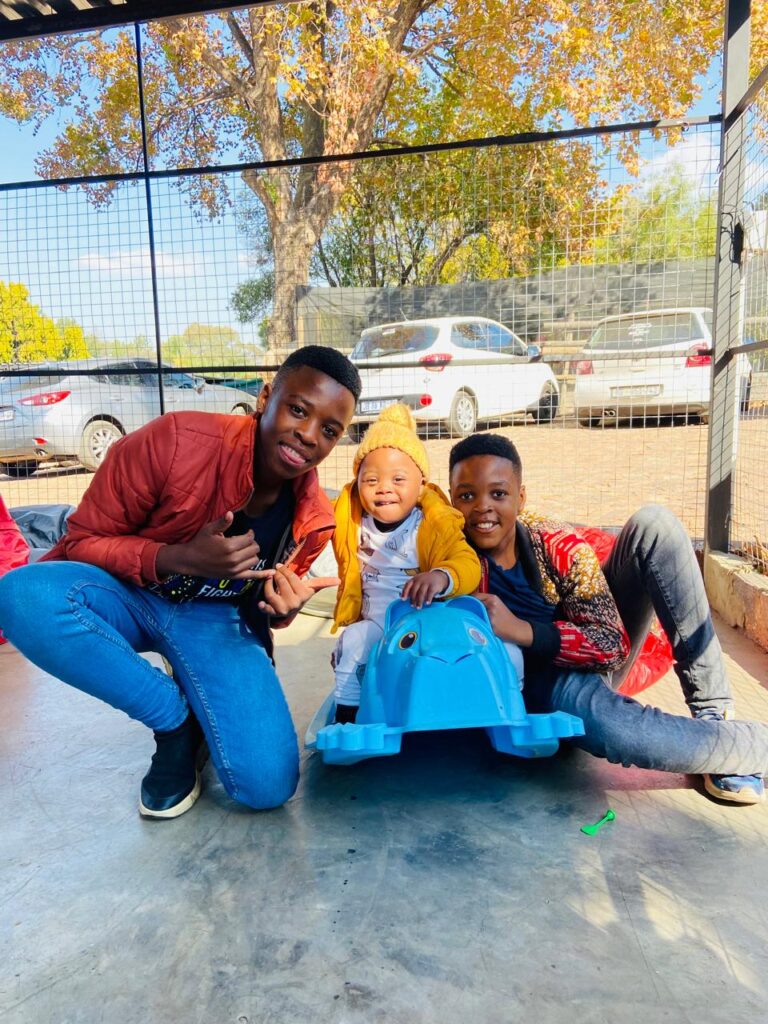
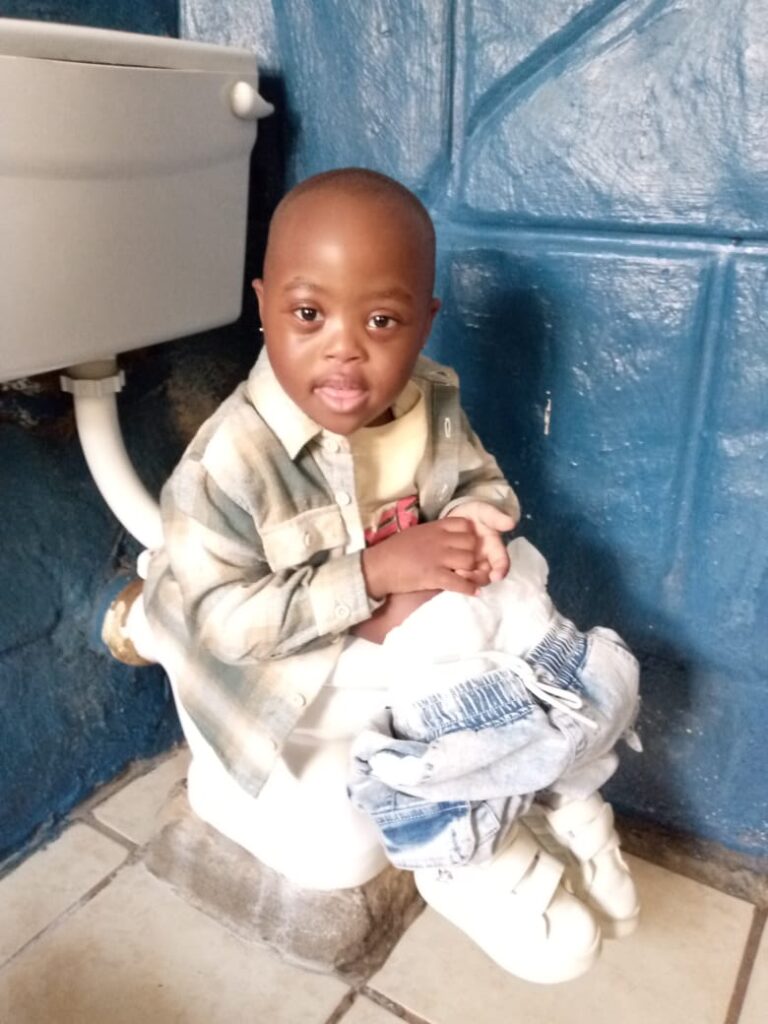
Shared Parenting, Shared Strength
Junior’s father has been steadfast from the beginning. “He never misses hospital appointments,” his mother shares. “He helps with daily care after work and together we make sure Junior gets everything he needs.” This teamwork is strengthened by her own commitment to research andeducating both herself and her husband about Down syndrome.
Balancing Work and Caregiving
As a self-employed mother, caregiving often means sacrifices,. “It’s very challenging and draining. Sometimes I have to skip work for many days, juggle my hours or take Junior with me. No work means no pay and when he comes to work with me, my services get delayed because he needs my attention.” The financial strain is real, compounded by long hospital waiting times and overcrowded clinics.Yet, she emphasizes that healthcare professionals provide the right treatments and guidance, evenwhen systems are overstretched.
Solutions That Light the Way
Despite the obstacles, she sees rays of hope. National and provincial organizations like the South Africa Down Syndrome Association and Gauteng Down syndrome association have helped her navigate resources and advocate for Junior. She dreams of more systemic solutions, such as government-supported special daycare centers. Many parents in her support group have had their children turned away from regular daycares due to stigma or lack of training.
In her words: “Our black community, especially on social media, needs more education about disability. Once you start accepting your child’s diagnosis, advocating for them comes naturally. Parenting doesn’t come with a manual, this is a journey and you must enjoy the ride while thanking God for choosing you.”
Looking Ahead
For Junior, the future is bright. His mother dreams of a world that sees him for who he is — not his diagnosis. “My hope is for the world to never limit him because he is able. Given the opportunity, he will be very successful and independent.”
The journey is not one walked alone. At school, Junior has found a special bond with Teacher Karabo, his favourite teacher. “She even checks on us when he’s not at school. They get along very well,” his mother shares with a smile.
Her message to other parents is simple yet profound: “God chose you purposefully to be part of your child’s life. You are one of His strongest soldiers.” And in true South African spirit, her story echoes the timeless wisdom that “it takes a village to raise a child.” Junior’s village is his family, teachers, community and support groups which shows that when love, awareness and inclusion come together, every child can thrive.


